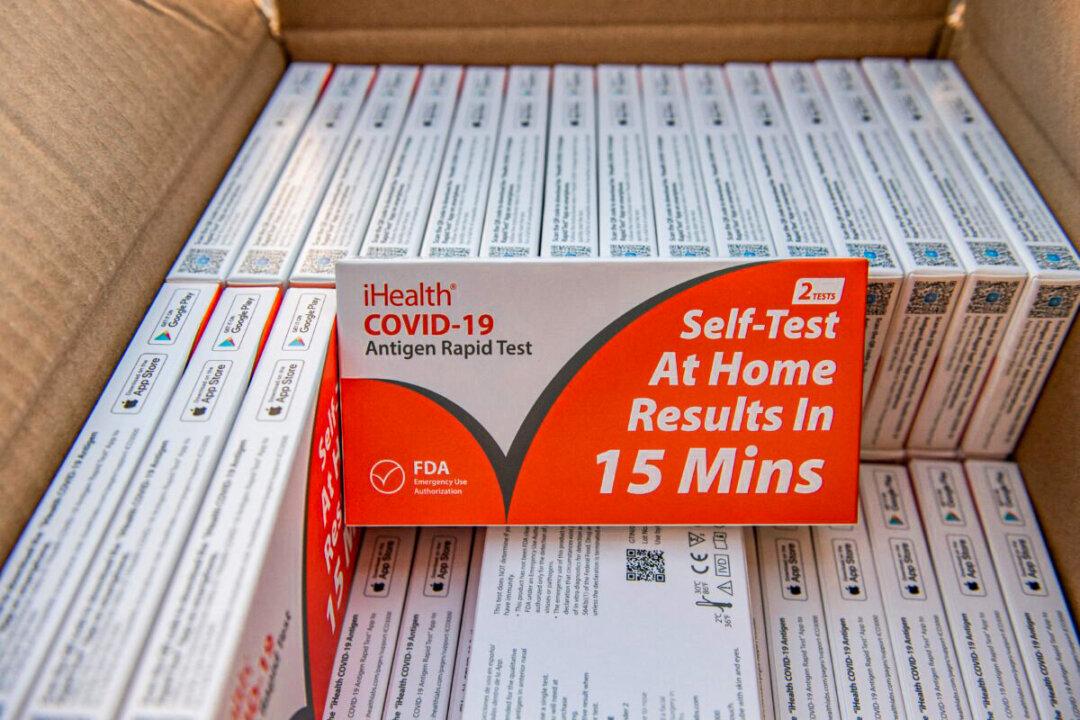A Chinese-owned company that secured a nearly $2-billion contract with the U.S. government to supply COVID-19 self-test kits has sought to give its brand a further boost—by marketing at the Super Bowl.
From Feb. 5 to Feb. 12, iHealth Labs, a California-based subsidiary of Chinese medical device maker Andon Health, handed out 120,000 test kits to visitors at a pre-Super Bowl event at the LA Convention Center. On game night, it ran advertising featured on LED panels and in branded openings on the stadium’s video board during quarter-time breaks, according to the company.





